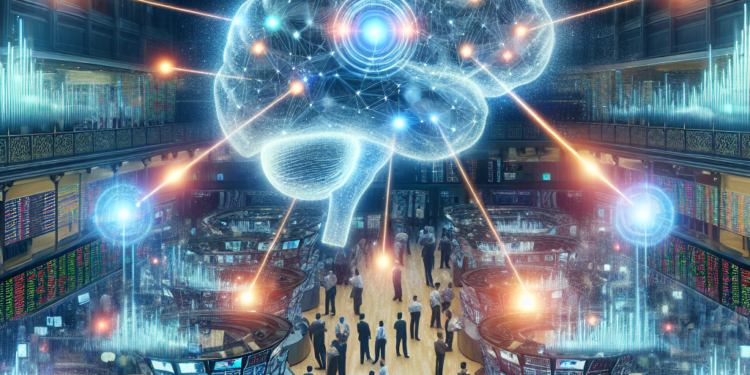With the advancement of technology, many industries have seen significant improvements in their operations. One such industry that has benefitted greatly from these technological advancements is the financial markets. In particular, artificial intelligence (AI) has revolutionized the way market predictions are made.
AI has the ability to analyze vast amounts of data at a speed that is impossible for humans to match. This allows AI algorithms to identify patterns and trends in the market that would otherwise go unnoticed. By analyzing historical market data, AI can predict future market movements with a high degree of accuracy.
One of the ways in which AI has improved market predictions is by automating the process of data analysis. In the past, traders would spend hours poring over charts and graphs, looking for patterns that could indicate potential market movements. This process was not only time-consuming but also prone to human error.
AI algorithms, on the other hand, can analyze thousands of data points in a matter of seconds, allowing traders to make decisions based on the most up-to-date information available. This real-time analysis allows traders to react quickly to changing market conditions, giving them a competitive edge over their competitors.
Another way in which AI has improved market predictions is by reducing the influence of human bias. Humans are inherently emotional beings, and these emotions can often cloud our judgment when it comes to making investment decisions. AI algorithms, on the other hand, are completely objective and make decisions based on data alone.
This lack of emotion allows AI algorithms to make decisions based on facts, rather than gut feelings. This results in more accurate market predictions, as the decisions are based on data and analysis rather than intuition.
AI has also improved market predictions by allowing traders to access a wider range of data sources. In the past, traders were limited to using traditional market data sources such as price charts and volume indicators. This limited the amount of information available to traders, making it difficult to make accurate predictions.
AI algorithms, however, can access a wide range of data sources, including social media feeds, news articles, and even satellite imagery. By incorporating this additional data into their analysis, AI algorithms can make more informed predictions about market movements.
AI has also improved market predictions by facilitating the use of machine learning algorithms. Machine learning algorithms are a type of AI algorithm that can learn from past data and make predictions based on this learning. This allows traders to make predictions that are constantly improving as the machine learning algorithm continues to learn from new data.
One of the ways in which machine learning algorithms have improved market predictions is through the use of neural networks. Neural networks are a type of machine learning algorithm that mimics the way the human brain works. By analyzing vast amounts of data, neural networks can identify complex patterns and relationships that would be impossible for humans to discern.
This ability to identify complex patterns allows neural networks to make predictions that are more accurate than those made by traditional AI algorithms. By incorporating neural networks into their analysis, traders can make more informed decisions about market movements.
AI has also improved market predictions by enabling the use of predictive analytics. Predictive analytics is a type of AI algorithm that uses historical data to make predictions about future events. By analyzing past market data, predictive analytics algorithms can identify trends and patterns that indicate potential market movements.
This ability to predict future market movements gives traders a significant advantage when it comes to making investment decisions. By incorporating predictive analytics into their analysis, traders can make predictions that are more accurate and informed, allowing them to capitalize on market opportunities.
In conclusion, AI has revolutionized the way market predictions are made. By automating the process of data analysis, reducing the influence of human bias, and enabling the use of machine learning algorithms, AI has improved the accuracy and reliability of market predictions. As AI continues to advance, we can expect to see even greater improvements in market predictions, giving traders an unprecedented advantage in the financial markets.













